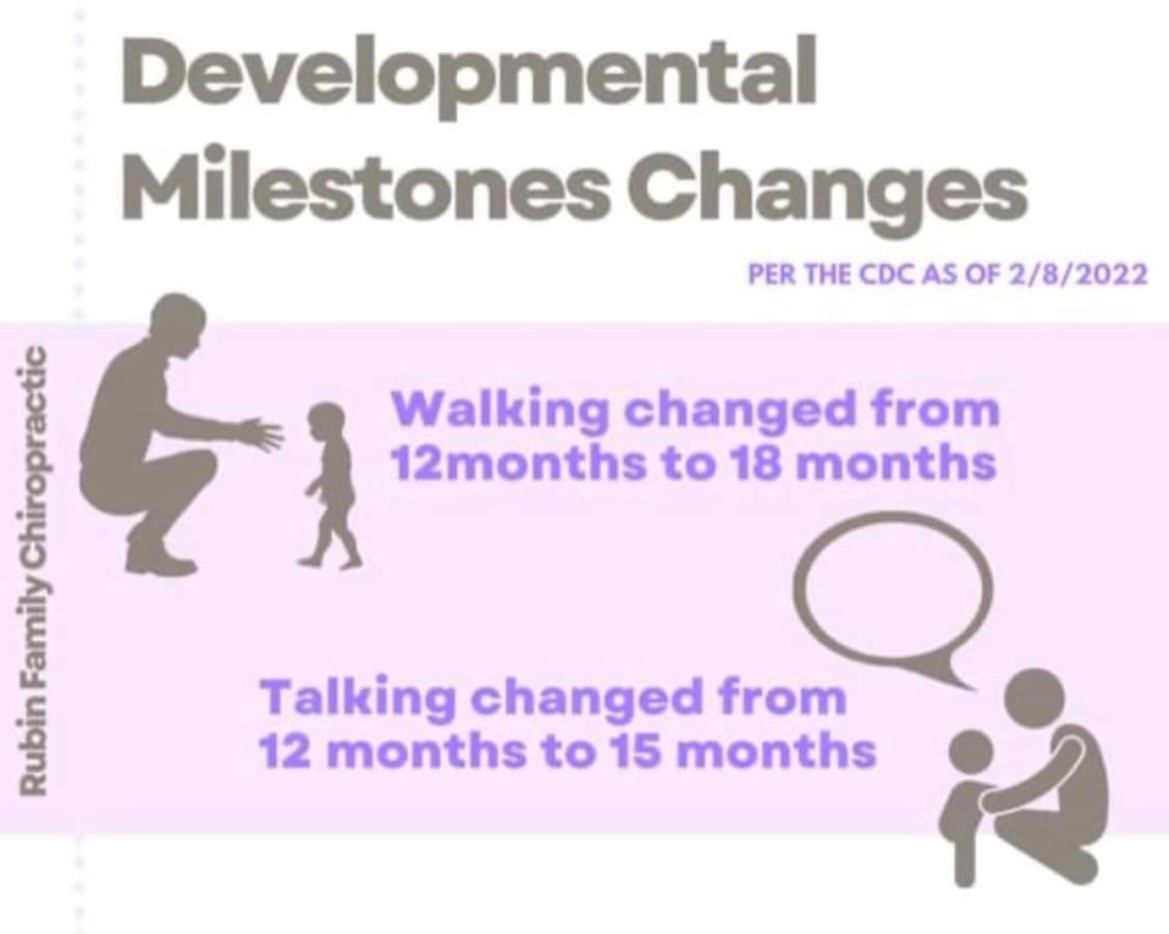Change to Developmental Milestones.
How often do you have the conversation about ‘Common vs normal’ with your practice members? Forward head posture, the amount of soft drink consumed, crawling techniques and time spent on social media just to mention a few topics – the distinction is important to point out: ‘Just because your friends are all the same doesn’t mean that it is normal’.
A few years ago I had this conversation with our local Gymbaroo coordinator. She mentioned that they had recently adopted 18 months as the expected age for walking unassisted, changed from the 12 months it had been previously. She explained that since most infants across the Gymbaroo Centres did not master the art of walking until way past the age of 12 months, it was deemed necessary to move the milestone so as not to cause parents undue worry. Then she laughed and said that the parents of babies who walked by 12 months would be excited to have a superstar child who was ahead of the game.
Interestingly, this delay in achieving milestones has just been formally recognised. The Center for Disease Control and the American Academy of Pediatrics published updated developmental milestones for children 0-5 years on February 8, 2022. A group of medical experts went through the previous checklist from 2004 and transferred one third of the milestones to different ages. 67% of the transferrals were to an older age. Again, their stated purpose is to not cause undue concern in parents when their children do not reach their milestones, while still encouraging an early detection and intervention approach.
I absolutely acknowledge that many more children in my practice appear to reach their motor milestones later. However, rather than just accepting that this is happening, why not ponder WHY and address the cause rather than the symptom?
It goes without saying that the average lifestyle has changed significantly over the past 20-30 years. Families are busier than ever. The ‘Back to sleep’ campaign has resulted in much less tummy time through the day, as well as night, as families take precautionary measures with floor and play time. Children take part in many more activities, resulting in their infant siblings spending more time out and about in capsules and prams, rather than at home doing active floor time. Parents spend more time on screens and devices than in the past, hence interacting less with their little ones. Many even allow infants to play with their own fascinating screen toy. It all adds up to less proprioceptive and vestibular stimulation, less time moving and practicing motor skills, resulting in diminished core strength, muscle tone and potentially slower achievement of milestones.
Why are health professionals just accepting the lowering of the bar? Why aren’t we all more proactive in educating young families about the importance of movement for our children succeed and thrive in life. Parents need to understand the seriousness of what is happening to the next generation with too little movement. It is well known what happens to young brains that do not receive the stimulation they require. It has been documented again and again, most notably in the poor Romanian orphans. There are several studies showing that delay in learning to walk is associated with an increased risk of significant mental health issues later in life.
I am not saying that we have a generation of schizophrenics coming up, only that early development impacts brain function later in life. And that we as chiropractors, as well as other health care providers, need to do more. We need to reach out to our local communities and help young families understand the simple measures they can take to help their children develop and thrive to the best of their ability. And obviously adding chiropractic to that will take the conversation to a whole different level. You may feel you don’t know enough to do this; well, now is the perfect time to learn. To master checking babies’ and children’s developmental milestone and help them to reach them and develop to their full potential, join us for Switched-on Babies and Switched-on Kids in May.
Look forward to seeing your then,
Dorte XX
Evidence-Informed Milestones for Developmental Surveillance Tools, Jennifer M. Zubler, MD; Pediatrics FEBRUARY 08 2022
Early developmental milestones and risk of schizophrenia. A 45-year follow-up of the Copenhagen Perinatal Cohort Holger J. Sørensen, Schizophr Res. 2010 May; 118(0): 41–47.
Early motor developmental milestones and schizophrenia: A systematic review and meta-analysis Sfilatova Schizophrenia Research Volume 188, October 2017, Pages 13-20



